This is the first horror film I’ve watched, and one of the first feature-length horror films ever made. It’s loosely based on Edgar Allen Poe’s story “The Tell-Tale Heart,” but with some other Poe references tossed in for good measure. Though slow to start, once the horror story elements kicked in, this became a very enjoyable movie. Before that, however, it was feeling like a big of a slog, and about 30 minutes into its 81-minute runtime I was starting to count the minutes.
The story concerns a character only known as The Nephew, played by Henry B. Walthall, who works for his Uncle, who has raised him since he was orphaned as a baby. The Nephew is in love with a girl whose name we don’t know, but to whom The Nephew refers to as Anabel, because he compares her to the character in the Poe poem. Anabel is played by Blanche Sweet, who we last saw in The Lonedale Operator. They are forced to break up because The Uncle forbids The Nephew to do anything that will distract him from his work. While The Nephew goes to a garden party to give Anabel the bad news, The Uncle takes a walk, during which time he sees some young couples, and a baby, and realizes love isn’t so bad after all. He goes home to let his nephew know it’s okay for him to marry Anabel, but it’s too late. When he gets home, his nephew, insane with sorrow, strangles him before he can give his blessing, and hides the body behind a freshly-laid brick wall.
This is when the film kicks into gear, and redeems itself. From this point on, The Nephew has visions of The Uncle’s ghost emerging from the brick fireplace, haunting him throughout the house. There’s also The Italian, a big, dumb, drunkard who witnessed the crime and blackmails The Nephew, and a detective who suspects what he’s done. Griffith utilizes interesting, and sometimes grotesque, imagery to pepper the finale with meaning, so we see Jesus on the cross, and angel holding a banner that reads ‘thou shalt not kill,’ some gruesome, demonic ghouls, and even a scary witch on a broom. It’s effective, and scary. For a film that came out on August 2, 1914, it no doubt gave audiences far more of a scare than it would one today, but I still found it effective, and the effects were very well done.
In the end, The Nephew confesses, then engages in a shoot-out with the police before trying to hang himself. Anabel sees this and in her sorrow leaps to her death from a cliff. We then see The Nephew asleep in the comfy chair by the fireplace. He wakes up, and The Uncle comes into the room. He pokes him a few times to make sure he’s real, then realizes— it was all a dream! The Uncle says he should marry Anabel, who then shows up to say she loves him too much to break up, and all is well. The Nephew becomes a famous writer, and we see Pan playing his panpipes as some wood fairy children emerge from a tree as the film comes to a close. Such meaningfulness!
I watched this on a great-looking DVD from Kino Lorber. It looks like they are no longer selling it, and Amazon currently has only one for sale for a small fortune. You may be able to find it on eBay. Who’s to say?
Next I’m watching: The Bargain [1914], directed by Reginald Barker.

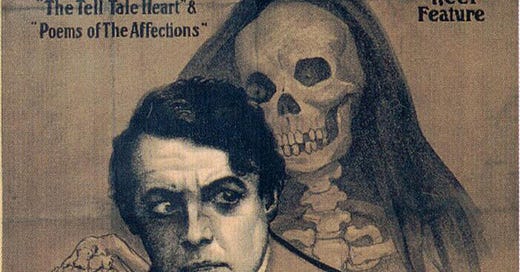





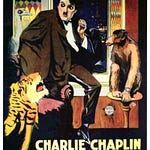
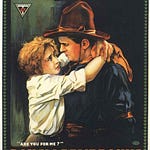
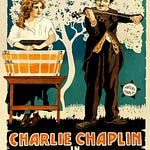

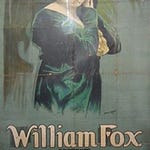
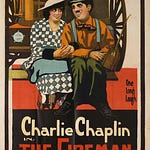

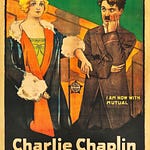
Share this post